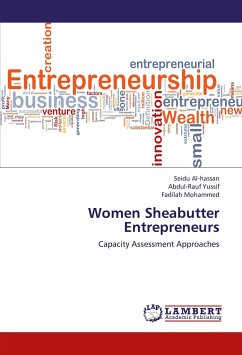African women entrepreneurs present a potential force for social and economic development. In Sub-Saharan Africa women account for ninety percent of the work in food processing and eighty percent in food storage and transportation. For example, in Ghana, women have traditionally occupied key positions alongside men in the production of goods and services, yet their contributions to the economy are largely absent from national accounts. Moreover, Ghanaian women entrepreneurs have been victimized by the status quo. The main purpose of the study was to find out what business practices would be appropriate in helping women in Ghana and Africa in general with regard to managing their small businesses based on the experiences of the interviewees. Another purpose was to ascertain any government policy that serves as a barrier to women entrepreneurship development. The study shows that several factors are influencial in their business survival. These include innovation, business plan, family support, social networks, and professional development. The study also reveals that the interviewees experience gender discrimination in terms of public policies and the legal system.
Bitte wählen Sie Ihr Anliegen aus.
Rechnungen
Retourenschein anfordern
Bestellstatus
Storno








